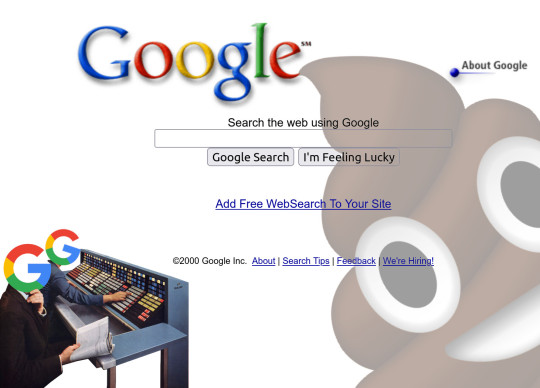#Make money with AI no coding
Explore tagged Tumblr posts
Text
10 Easy Ways to Make Money with AI in 2024 – No Tech Skills Needed!

Artificial Intelligence (AI) isn’t some sci-fi concept anymore—it’s already part of our daily lives! And guess what? You don’t have to be a tech wizard to use AI to make money. Whether you’re a freelancer, a small business owner, or just someone looking for a side hustle, there are tons of ways AI can help you boost your income. Here are 10 super easy ways to make money with AI in 2024—and the best part? No coding required!
1. Let AI Write for You
Ever wanted to get into content writing but didn’t know where to start? AI tools like ChatGPT and Jasper can help you create blog posts, marketing copy, or even social media captions in minutes. You could offer freelance writing services or start your own blog.
2. Use AI for Affiliate Marketing
AI can help you make better decisions in affiliate marketing. Tools analyze trends and audience behavior to suggest the best products to promote. More targeted recommendations = higher commissions for you!
3. Automate Social Media Like a Pro
Managing multiple social media accounts? Let AI help! Platforms like Buffer and Hootsuite automate scheduling and engagement, saving you hours of manual work. You could even manage social media accounts for others and turn it into a business.
4. Boost SEO with AI
You don’t need to be an SEO expert to rank high on Google. AI tools like Surfer SEO and Frase help you optimize your content for search engines. You can offer SEO services to businesses or just rank your own website higher.
5. Create AI Chatbots (Easier Than You Think!)
You don’t need coding skills to build a chatbot anymore. Platforms like ManyChat let you create automated chatbots for businesses, improving customer service without lifting a finger. Charge businesses for chatbot creation and maintenance—easy money!
6. Personalize E-commerce with AI
Got an online store? AI-powered recommendation engines can help boost sales by showing your customers products they’ll love. It’s like having a personal shopper for every visitor—goodbye, abandoned carts!
7. Offer AI-Enhanced Virtual Assistance
If you’re a virtual assistant, AI tools like Grammarly or Otter.ai can make your job easier. From transcribing meetings to proofreading emails, AI will save you time, letting you take on more clients (and make more money!).
8. Create Stunning AI-Generated Videos
You don’t need expensive software or editing skills to create pro-quality videos. Tools like Pictory and Synthesia use AI to generate videos in minutes. You could create YouTube content or offer video creation services for businesses.
9. Let AI Trade for You
If you’re into stocks or crypto but not keen on sitting in front of charts all day, AI trading bots might be for you. These tools predict market trends and automate trades, helping you make smarter investment decisions—even when you’re asleep!
10. Start an AI-Powered Dropshipping Business
AI can simplify dropshipping by finding trending products, optimizing your ads, and automating order fulfillment. It takes care of the hard stuff so you can focus on growing your business without the headaches.
#Easy ways to make money with AI#AI tools for beginners#Make money with AI no coding#AI affiliate marketing#AI social media automation
1 note
·
View note
Text
I am once again daydreaming of making my own social media platform and how to make it not give a hoot about American laws (no relation to American soil, I'm European anyway) and be structurally resistant to enshitification through independence and community ownership unfortunately I am one inexperienced programmer with not much spare change to throw at such a gamble so I'm only daydreaming
#sfw#personal#ok to reblog#I wanna minimize costs to minimize the need for it to make money in any way. No appealing to advertisers or investors.#Wikimedia and AO3 have that from what I can tell but they both rely on donations to keep the servers running#(I don't shame them obviously but it's difficult and unreliable especially if you're not as big and well known as them)#I know I'm way out of my depth trying to figure out a way to use servers differently but again only daydreaming#At least I'm not the guy saying I wanna make 'the new PDF' lmao#or the guy firing programmers based on how many lines of code they write and replacing a brand name known to most humans with 1 letter#or the guy suggesting users should be able to 'devowel' articles#or whoever's deciding to replace volunteer translators with AI and remove every single useful feature#or a thousand other bad ideas for making more money and stroking their egos. man I just want a little island of weird internet surviving#and yeah alternatives exist but I don't know how they'll avoid dying or surviving wrong either
25 notes
·
View notes
Text
God I’m so pissed off at this hellsite for making a deal with ai companies >:[
#as an artist I do not want my art to be used to train tech and for tech bros to possibly profit from it when I make no money off of my art#and do it as a hobby#it makes me mad that ai art has become a thing I just really want it to go away and never come back#anyways I’m gonna figure out glaze (even though it doesn’t do much)#or make my own website where I can find a way to block ai art sites so high quality versions of my work can exist#even though I can’t code at all
4 notes
·
View notes
Text
🚀 #BREAKING: AI Made Simple & Accessible for EVERYONE!
This is your ultimate guide
✅ No #tech background? No problem! Simple, #beginner-friendly
✅ Real-life examples of AI in action from #healthcare to #finance to
✅ Practical #tips to start using #AI
📥 Grab your copy NOW
#content creator#influencer#small creator#digital creator#onlyfans creator#ai creation#influential#trans creator#make money online#tech#breaking news#BREAKING#world news#news#ai art#artificial intelligence#healthcare#finance#coding
1 note
·
View note
Text
Unlock Explosive Growth: Elite AI Suite Review

Elite AI Suite: Benefits
Natural Language Processing (NLP):
Robust NLP capabilities, including sentiment analysis, text summarization, and entity recognition.
Extract valuable insights from textual data effortlessly.
Computer Vision:
Advanced computer vision algorithms for tasks like object detection, image classification, and facial recognition.
Valuable across applications spanning security to retail.
Pre-Trained Machine Learning Models:
Standout feature: Provision of pre-trained machine learning models.
Cover diverse domains, empowering users to kickstart AI projects without extensive training data or expertise.
Scalability and Integration:
Designed to scale seamlessly, accommodating both small businesses and enterprise-level deployments.
Integration with popular development frameworks and cloud platforms enhances versatility.
User Experience
Intuitive Interface: The Elite AI Suite boasts an accessible user interface, suitable for seasoned developers and newcomers alike.
Well-Documented APIs and SDKs: Facilitates smooth integration into existing workflows, minimizing the learning curve.
Performance
Commendable Results: The accuracy of its models, coupled with efficient resource utilization, ensures optimal performance even in demanding production environments.
>>>>>>Get More Info
1 note
·
View note
Text
Unlock Explosive Growth: Elite AI Suite Review

Elite AI Suite Review: Features
First To Market AI Tech with 125+ AI & web tools that revolutionize your Business!
All-in-one complete AI marketing suite to enter and profit from Top AI Niches!
With Built-in AI tools, generate voiceovers, write content, Create images from keywords in seconds!
Easily perform AI Transcriptions and improve your audience reach 10X!
Grow your social media presence on Facebook, IG, YouTube and others with Bio pages, QR codes, URLs, links and custom domains!
Complete Social media content creation and marketing Automated with AI!
10X your engagement, traffic, clicks and sales, Maximize freelance revenues!
Save BIG on freelancers and designer fees- No more reliance on third-party platforms!
Perfect for digital marketers, bloggers, social media influencers and freelancers!
No Complicated Setup - Get Up And Running In 2 Minutes!
100% cloud based!
Beginner friendly – Age, experience, skill – No Bar!
Risk-Free: 30-Day Money-Back Guarantee!
>>>>READ MORE
1 note
·
View note
Text
#code craft ai review#affiliatemarketing#software review#affiliate marketing#software#make money as an affiliate#affiliate mastery#ai tools
0 notes
Text
Google’s enshittification memos

[Note, 9 October 2023: Google disputes the veracity of this claim, but has declined to provide the exhibits and testimony to support its claims. Read more about this here.]

When I think about how the old, good internet turned into the enshitternet, I imagine a series of small compromises, each seemingly reasonable at the time, each contributing to a cultural norm of making good things worse, and worse, and worse.
Think about Unity President Marc Whitten's nonpology for his company's disastrous rug-pull, in which they declared that everyone who had paid good money to use their tool to make a game would have to keep paying, every time someone downloaded that game:
The most fundamental thing that we’re trying to do is we’re building a sustainable business for Unity. And for us, that means that we do need to have a model that includes some sort of balancing change, including shared success.
https://www.wired.com/story/unity-walks-back-policies-lost-trust/
"Shared success" is code for, "If you use our tool to make money, we should make money too." This is bullshit. It's like saying, "We just want to find a way to share the success of the painters who use our brushes, so every time you sell a painting, we want to tax that sale." Or "Every time you sell a house, the company that made the hammer gets to wet its beak."
And note that they're not talking about shared risk here – no one at Unity is saying, "If you try to make a game with our tools and you lose a million bucks, we're on the hook for ten percent of your losses." This isn't partnership, it's extortion.
How did a company like Unity – which became a market leader by making a tool that understood the needs of game developers and filled them – turn into a protection racket? One bad decision at a time. One rationalization and then another. Slowly, and then all at once.
When I think about this enshittification curve, I often think of Google, a company that had its users' backs for years, which created a genuinely innovative search engine that worked so well it seemed like *magic, a company whose employees often had their pick of jobs, but chose the "don't be evil" gig because that mattered to them.
People make fun of that "don't be evil" motto, but if your key employees took the gig because they didn't want to be evil, and then you ask them to be evil, they might just quit. Hell, they might make a stink on the way out the door, too:
https://theintercept.com/2018/09/13/google-china-search-engine-employee-resigns/
Google is a company whose founders started out by publishing a scientific paper describing their search methodology, in which they said, "Oh, and by the way, ads will inevitably turn your search engine into a pile of shit, so we're gonna stay the fuck away from them":
http://infolab.stanford.edu/pub/papers/google.pdf
Those same founders retained a controlling interest in the company after it went IPO, explaining to investors that they were going to run the business without having their elbows jostled by shortsighted Wall Street assholes, so they could keep it from turning into a pile of shit:
https://abc.xyz/investor/founders-letters/ipo-letter/
And yet, it's turned into a pile of shit. Google search is so bad you might as well ask Jeeves. The company's big plan to fix it? Replace links to webpages with florid paragraphs of chatbot nonsense filled with a supremely confident lies:
https://pluralistic.net/2023/05/14/googles-ai-hype-circle/
How did the company get this bad? In part, this is the "curse of bigness." The company can't grow by attracting new users. When you have 90%+ of the market, there are no new customers to sign up. Hypothetically, they could grow by going into new lines of business, but Google is incapable of making a successful product in-house and also kills most of the products it buys from other, more innovative companies:
https://killedbygoogle.com/
Theoretically, the company could pursue new lines of business in-house, and indeed, the current leaders of companies like Amazon, Microsoft and Apple are all execs who figured out how to get the whole company to do something new, and were elevated to the CEO's office, making each one a billionaire and sealing their place in history.
It is for this very reason that any exec at a large firm who tries to make a business-wide improvement gets immediately and repeatedly knifed by all their colleagues, who correctly reason that if someone else becomes CEO, then they won't become CEO. Machiavelli was an optimist:
https://pluralistic.net/2023/07/28/microincentives-and-enshittification/
With no growth from new customers, and no growth from new businesses, "growth" has to come from squeezing workers (say, laying off 12,000 engineers after a stock buyback that would have paid their salaries for the next 27 years), or business customers (say, by colluding with Facebook to rig the ad market with the Jedi Blue conspiracy), or end-users.
Now, in theory, we might never know exactly what led to the enshittification of Google. In theory, all of compromises, debates and plots could be lost to history. But tech is not an oral culture, it's a written one, and techies write everything down and nothing is ever truly deleted.
Time and again, Big Tech tells on itself. Think of FTX's main conspirators all hanging out in a group chat called "Wirefraud." Amazon naming its program targeting weak, small publishers the "Gazelle Project" ("approach these small publishers the way a cheetah would pursue a sickly gazelle”). Amazon documenting the fact that users were unknowingly signing up for Prime and getting pissed; then figuring out how to reduce accidental signups, then deciding not to do it because it liked the money too much. Think of Zuck emailing his CFO in the middle of the night to defend his outsized offer to buy Instagram on the basis that users like Insta better and Facebook couldn't compete with them on quality.
It's like every Big Tech schemer has a folder on their desktop called "Mens Rea" filled with files like "Copy_of_Premeditated_Murder.docx":
https://doctorow.medium.com/big-tech-cant-stop-telling-on-itself-f7f0eb6d215a?sk=351f8a54ab8e02d7340620e5eec5024d
Right now, Google's on trial for its sins against antitrust law. It's a hard case to make. To secure a win, the prosecutors at the DoJ Antitrust Division are going to have to prove what was going on in Google execs' minds when the took the actions that led to the company's dominance. They're going to have to show that the company deliberately undertook to harm its users and customers.
Of course, it helps that Google put it all in writing.
Last week, there was a huge kerfuffile over the DoJ's practice of posting its exhibits from the trial to a website each night. This is a totally normal thing to do – a practice that dates back to the Microsoft antitrust trial. But Google pitched a tantrum over this and said that the docs the DoJ were posting would be turned into "clickbait." Which is another way of saying, "the public would find these documents very interesting, and they would be damning to us and our case":
https://www.bigtechontrial.com/p/secrecy-is-systemic
After initially deferring to Google, Judge Amit Mehta finally gave the Justice Department the greenlight to post the document. It's up. It's wild:
https://www.justice.gov/d9/2023-09/416692.pdf
The document is described as "notes for a course on communication" that Google VP for Finance Michael Roszak prepared. Roszak says he can't remember whether he ever gave the presentation, but insists that the remit for the course required him to tell students "things I didn't believe," and that's why the document is "full of hyperbole and exaggeration."
OK.
But here's what the document says: "search advertising is one of the world's greatest business models ever created…illicit businesses (cigarettes or drugs) could rival these economics…[W]e can mostly ignore the demand side…(users and queries) and only focus on the supply side of advertisers, ad formats and sales."
It goes on to say that this might be changing, and proposes a way to balance the interests of the search and ads teams, which are at odds, with search worrying that ads are pushing them to produce "unnatural search experiences to chase revenue."
"Unnatural search experiences to chase revenue" is a thinly veiled euphemism for the prophetic warnings in that 1998 Pagerank paper: "The goals of the advertising business model do not always correspond to providing quality search to users." Or, more plainly, "ads will turn our search engine into a pile of shit."
And, as Roszak writes, Google is "able to ignore one of the fundamental laws of economics…supply and demand." That is, the company has become so dominant and cemented its position so thoroughly as the default search engine across every platforms and system that even if it makes its search terrible to goose revenues, users won't leave. As Lily Tomlin put it on SNL: "We don't have to care, we're the phone company."
In the enshittification cycle, companies first lure in users with surpluses – like providing the best search results rather than the most profitable ones – with an eye to locking them in. In Google's case, that lock-in has multiple facets, but the big one is spending billions of dollars – enough to buy a whole Twitter, every single year – to be the default search everywhere.
Google doesn't buy its way to dominance because it has the very best search results and it wants to shield you from inferior competitors. The economically rational case for buying default position is that preventing competition is more profitable than succeeding by outperforming competitors. The best reason to buy the default everywhere is that it lets you lower quality without losing business. You can "ignore the demand side, and only focus on advertisers."
For a lot of people, the analysis stops here. "If you're not paying for the product, you're the product." Google locks in users and sells them to advertisers, who are their co-conspirators in a scheme to screw the rest of us.
But that's not right. For one thing, paying for a product doesn't mean you won't be the product. Apple charges a thousand bucks for an iPhone and then nonconsensually spies on every iOS user in order to target ads to them (and lies about it):
https://pluralistic.net/2022/11/14/luxury-surveillance/#liar-liar
John Deere charges six figures for its tractors, then runs a grift that blocks farmers from fixing their own machines, and then uses their control over repair to silence farmers who complain about it:
https://pluralistic.net/2022/05/31/dealers-choice/#be-a-shame-if-something-were-to-happen-to-it
Fair treatment from a corporation isn't a loyalty program that you earn by through sufficient spending. Companies that can sell you out, will sell you out, and then cry victim, insisting that they were only doing their fiduciary duty for their sacred shareholders. Companies are disciplined by fear of competition, regulation or – in the case of tech platforms – customers seizing the means of computation and installing ad-blockers, alternative clients, multiprotocol readers, etc:
https://doctorow.medium.com/an-audacious-plan-to-halt-the-internets-enshittification-and-throw-it-into-reverse-3cc01e7e4604?sk=85b3f5f7d051804521c3411711f0b554
Which is where the next stage of enshittification comes in: when the platform withdraws the surplus it had allocated to lure in – and then lock in – business customers (like advertisers) and reallocate it to the platform's shareholders.
For Google, there are several rackets that let it screw over advertisers as well as searchers (the advertisers are paying for the product, and they're also the product). Some of those rackets are well-known, like Jedi Blue, the market-rigging conspiracy that Google and Facebook colluded on:
https://en.wikipedia.org/wiki/Jedi_Blue
But thanks to the antitrust trial, we're learning about more of these. Megan Gray – ex-FTC, ex-DuckDuckGo – was in the courtroom last week when evidence was presented on Google execs' panic over a decline in "ad generating searches" and the sleazy gimmick they came up with to address it: manipulating the "semantic matching" on user queries:
https://www.wired.com/story/google-antitrust-lawsuit-search-results/
When you send a query to Google, it expands that query with terms that are similar – for example, if you search on "Weds" it might also search for "Wednesday." In the slides shown in the Google trial, we learned about another kind of semantic matching that Google performed, this one intended to turn your search results into "a twisted shopping mall you can’t escape."
Here's how that worked: when you ran a query like "children's clothing," Google secretly appended the brand name of a kids' clothing manufacturer to the query. This, in turn, triggered a ton of ads – because rival brands will have bought ads against their competitors' name (like Pepsi buying ads that are shown over queries for Coke).
Here we see surpluses being taken away from both end-users and business customers – that is, searchers and advertisers. For searchers, it doesn't matter how much you refine your query, you're still going to get crummy search results because there's an unkillable, hidden search term stuck to your query, like a piece of shit that Google keeps sticking to the sole of your shoe.
But for advertisers, this is also a scam. They're paying to be matched to users who search on a brand name, and you didn't search on that brand name. It's especially bad for the company whose name has been appended to your search, because Google has a protection racket where the company that matches your search has to pay extra in order to show up overtop of rivals who are worse matches. Both the matching company and those rivals have given Google a credit-card that Google gets to bill every time a user searches on the company's name, and Google is just running fraudulent charges through those cards.
And, of course, Google put this in writing. I mean, of course they did. As we learned from the documentary The Incredibles, supervillains can't stop themselves from monologuing, and in big, sprawling monopolists, these monologues have to transmitted electronically – and often indelibly – to far-flung co-cabalists.
As Gray points out, this is an incredibly blunt enshittification technique: "it hadn’t even occurred to me that Google just flat out deletes queries and replaces them with ones that monetize better." We don't know how long Google did this for or how frequently this bait-and-switch was deployed.
But if this is a blunt way of Google smashing its fist down on the scales that balance search quality against ad revenues, there's plenty of subtler ways the company could sneak a thumb on there. A Google exec at the trial rhapsodized about his company's "contract with the user" to deliver an "honest results policy," but given how bad Google search is these days, we're left to either believe he's lying or that Google sucks at search.
The paper trail offers a tantalizing look at how a company went from doing something that was so good it felt like a magic trick to being "able to ignore one of the fundamental laws of economics…supply and demand," able to "ignore the demand side…(users and queries) and only focus on the supply side of advertisers."
What's more, this is a system where everyone loses (except for Google): this isn't a grift run by Google and advertisers on users – it's a grift Google runs on everyone.

If you'd like an essay-formatted version of this post to read or share, here's a link to it on pluralistic.net, my surveillance-free, ad-free, tracker-free blog:
https://pluralistic.net/2023/10/03/not-feeling-lucky/#fundamental-laws-of-economics


My next novel is The Lost Cause, a hopeful novel of the climate emergency. Amazon won't sell the audiobook, so I made my own and I'm pre-selling it on Kickstarter!
#pluralistic#enshittification#semantic matching#google#antitrust#trustbusting#transparency#fatfingers#serp#the algorithm#telling on yourself
6K notes
·
View notes
Text
this ^
I think there's a very clear difference in "wanting to work alongside ai" and "ai stealing the works of others without permission and never giving back"
#Ai can be used for so much good besides trying to replicate people's creations#AI programming algorithms that tells you parts of code that can be redone to save on memory and processing is a great example#AI should be built to IMPROVE people's jobs NOT STEAL/REPLACE THEM#it just fucks with me to no end that the first major uses of AI learning is to completely devalue people who create things#all because shitty tech bros cant be assed to pay the money for art commissions#or see how much money art makes and decide stealing is more their speed instead of learning to draw themselves...
184 notes
·
View notes
Text
ChatGPT for Internet Marketers (PLR) information
From: Eric Holmlund and Ryan Greene
Dear Entrepreneur,
AI is taking the world by storm, and everyone is clamoring to get a piece of it.
It was recently announced that ChatGPT was the fastest app in history to reach 100 Million users. It took Instagram over 2 years, and TikTok 9 months to reach that milestone.
The reason it is growing so rapidly, is because entrepreneurs and businesses around the world want to harness this technology to get more done and make more money... while doing less work! Sounds great, right?
The problem is, there is a lot of misinformation about it, and there are currently hundreds of millions of people trying to FIGURE OUT HOW TO USE IT. So...
We've created a masterclass teaching internet marketers how to use ChatGPT to increase their productivity and make more money online.
You can download that course from this page today just $5

#what is chatgpt#chatgpt tutorial#chatgpt explained#how to use chatgpt#chatgpt examples#openai chatgpt#chatgpt demo#make money with chatgpt#chatgpt coding#tutorial chatgpt#chatgpt use cases#make money chatgpt#chatgpt ai#chatgpt 3.5#chatbot#chatgpt ideas#waht is chatgpt#chatgpt openai#chatgpt в россии#chatgpt украина#chatgpt use case#chatgpt how to use#что такое chatgpt#plr#plr ebooks#o que é plr#plr passo a passo#plr como funciona#plr do zero#make money with plr
0 notes
Text
Honestly I'm pretty tired of supporting nostalgebraist-autoresponder. Going to wind down the project some time before the end of this year.
Posting this mainly to get the idea out there, I guess.
This project has taken an immense amount of effort from me over the years, and still does, even when it's just in maintenance mode.
Today some mysterious system update (or something) made the model no longer fit on the GPU I normally use for it, despite all the same code and settings on my end.
This exact kind of thing happened once before this year, and I eventually figured it out, but I haven't figured this one out yet. This problem consumed several hours of what was meant to be a relaxing Sunday. Based on past experience, getting to the bottom of the issue would take many more hours.
My options in the short term are to
A. spend (even) more money per unit time, by renting a more powerful GPU to do the same damn thing I know the less powerful one can do (it was doing it this morning!), or
B. silently reduce the context window length by a large amount (and thus the "smartness" of the output, to some degree) to allow the model to fit on the old GPU.
Things like this happen all the time, behind the scenes.
I don't want to be doing this for another year, much less several years. I don't want to be doing it at all.
----
In 2019 and 2020, it was fun to make a GPT-2 autoresponder bot.
[EDIT: I've seen several people misread the previous line and infer that nostalgebraist-autoresponder is still using GPT-2. She isn't, and hasn't been for a long time. Her latest model is a finetuned LLaMA-13B.]
Hardly anyone else was doing anything like it. I wasn't the most qualified person in the world to do it, and I didn't do the best possible job, but who cares? I learned a lot, and the really competent tech bros of 2019 were off doing something else.
And it was fun to watch the bot "pretend to be me" while interacting (mostly) with my actual group of tumblr mutuals.
In 2023, everyone and their grandmother is making some kind of "gen AI" app. They are helped along by a dizzying array of tools, cranked out by hyper-competent tech bros with apparently infinite reserves of free time.
There are so many of these tools and demos. Every week it seems like there are a hundred more; it feels like every day I wake up and am expected to be familiar with a hundred more vaguely nostalgebraist-autoresponder-shaped things.
And every one of them is vastly better-engineered than my own hacky efforts. They build on each other, and reap the accelerating returns.
I've tended to do everything first, ahead of the curve, in my own way. This is what I like doing. Going out into unexplored wilderness, not really knowing what I'm doing, without any maps.
Later, hundreds of others with go to the same place. They'll make maps, and share them. They'll go there again and again, learning to make the expeditions systematically. They'll make an optimized industrial process of it. Meanwhile, I'll be locked in to my own cottage-industry mode of production.
Being the first to do something means you end up eventually being the worst.
----
I had a GPT chatbot in 2019, before GPT-3 existed. I don't think Huggingface Transformers existed, either. I used the primitive tools that were available at the time, and built on them in my own way. These days, it is almost trivial to do the things I did, much better, with standardized tools.
I had a denoising diffusion image generator in 2021, before DALLE-2 or Stable Diffusion or Huggingface Diffusers. I used the primitive tools that were available at the time, and built on them in my own way. These days, it is almost trivial to do the things I did, much better, with standardized tools.
Earlier this year, I was (probably) one the first people to finetune LLaMA. I manually strapped LoRA and 8-bit quantization onto the original codebase, figuring out everything the hard way. It was fun.
Just a few months later, and your grandmother is probably running LLaMA on her toaster as we speak. My homegrown methods look hopelessly antiquated. I think everyone's doing 4-bit quantization now?
(Are they? I can't keep track anymore -- the hyper-competent tech bros are too damn fast. A few months from now the thing will be probably be quantized to -1 bits, somehow. It'll be running in your phone's browser. And it'll be using RLHF, except no, it'll be using some successor to RLHF that everyone's hyping up at the time...)
"You have a GPT chatbot?" someone will ask me. "I assume you're using AutoLangGPTLayerPrompt?"
No, no, I'm not. I'm trying to debug obscure CUDA issues on a Sunday so my bot can carry on talking to a thousand strangers, every one of whom is asking it something like "PENIS PENIS PENIS."
Only I am capable of unplugging the blockage and giving the "PENIS PENIS PENIS" askers the responses they crave. ("Which is ... what, exactly?", one might justly wonder.) No one else would fully understand the nature of the bug. It is special to my own bizarre, antiquated, homegrown system.
I must have one of the longest-running GPT chatbots in existence, by now. Possibly the longest-running one?
I like doing new things. I like hacking through uncharted wilderness. The world of GPT chatbots has long since ceased to provide this kind of value to me.
I want to cede this ground to the LLaMA techbros and the prompt engineers. It is not my wilderness anymore.
I miss wilderness. Maybe I will find a new patch of it, in some new place, that no one cares about yet.
----
Even in 2023, there isn't really anything else out there quite like Frank. But there could be.
If you want to develop some sort of Frank-like thing, there has never been a better time than now. Everyone and their grandmother is doing it.
"But -- but how, exactly?"
Don't ask me. I don't know. This isn't my area anymore.
There has never been a better time to make a GPT chatbot -- for everyone except me, that is.
Ask the techbros, the prompt engineers, the grandmas running OpenChatGPT on their ironing boards. They are doing what I did, faster and easier and better, in their sleep. Ask them.
5K notes
·
View notes
Text
Hamas is a heinous, murderous, vile terrorist group that’s intent on killing Jews.
But you can’t say they haven’t been honest about their intentions. Their manifesto, the interviews they’ve given, and the way they try to brainwash children through schools and media content have all been quite blatant in showing their modus operandi.
However, despite their very brutal honesty, why do Hamas-sympathisers try so hard to make Hamas look like good guys by defending literal crimes in the most insane ways?
It’s worrying and also shocking as these hypocrisies are such common sentiments coming from college campuses, which were once institutions that honed critical thinking.
Do they think that “kill all Jews” is a code phrase for “we want our territory back”? How do you possibly interpret open calls for the annihilation of Jews in any other way than what it is?
Do they not think that kidnapping women, raping and torturing them, and parading their naked, mutilated bodies around town to sexually humiliate them while men cheer is sexual violence against women? Isn’t this a feminist issue, part of the MeToo movement?
“Think about the children!” Yes, but when babies are beheaded and burned, when 4 year olds are kidnapped and orphaned, is claiming that these are AI-generated images and ripping down the posters of the hostages thinking of the children?
They cry out about war crimes but ignore that raping women and taking hostages are literally war crimes.
They scream to boycott companies for their ties to Israel using devices with technology designed in Israel. Will they give up their life’s pleasures because of their ties to Israel? My money is on no, because it’ll affect them personally and heaven forbid they take up activism that actually would inconvenience them in the slightest.
They claim to be experts in geopolitics after watching one TikTok video and claim that this is about territory and not antisemitism while also saying that Israelis can just “go back to whichever other country they also have citizenship in”. While turning a blind eye to the multiple antisemitic attacks around the world, and calling Israelis “white colonisers”.
They also claim to be champions of mental health awareness, experts in the psychological mechanisms of mental illnesses and take cautions to avoid triggers and micro-aggressions so as to not offend those who have psychological conditions. “We should let those who actually have these conditions speak up about their experiences!!”
But then when it comes to actual psychologically stressing situations like being kidnapped and taken hostage, they suddenly can speak for the hostages and know exactly what went on based on the most vacuous, flimsy evidence? “Oh she’s in love with her captor, she’s smiling at him! They’re smiling and waving, they must have been treated nicely by Hamas!”
How do they sleep at night with these competing ideologies in their heads? What do they achieve by making all these seem like the actions of good people?
They’re like Hamas’ PR team and defence attorneys rolled into one.
No matter what crime Hamas commits, they’ll come up with justifications and make it look like some kind of beneficent act of humanitarianism.
It’s so exhausting trying to reason with people who don’t see reason.
#i stand with israel#israel#palestine#gaza#am yisrael chai#pro israel#stop hamas#hamas#stop antisemitism#jewish#judaism#i’m so tired#how can people still deny that hamas is a terrorist organisation#free palestine from hamas
882 notes
·
View notes
Text
AYS Behind the scenes: behind the paywall
Now that the Disney+ episodes are complete (sob), my attention is firmly fixed on my mailbox as I wait impatiently for the AYS photobook and QR code.

I was always going to buy the Jikook photobook, even though I doubt there will be much we haven't already seen in the episodes. But the inclusion of the QR code was the clincher.
I must admit, Hybe locking up the behind the scenes for AYS was not on my bingo sheet.
Making behind/additional clips available on Bangtan TV would have been more in line with their regular MO. We don't generally have to pay for what really amounts to outtakes.
Okay, yes, we have to pay for behind cuts of Run BTS, but the actual episodes are free. With everything else the behind clips are included when you buy the series (I'm thinking of BV, ITS, and concert boxed sets).
In fact I can't think of any other time a behind/ bonus clip hasn't been available to fans who pay for the main content.
Maybe it is because Hybe was only contracted to deliver 8 episodes to Disney+ and the price was fixed. Maybe they saw an easy way to make the series more profitable.
We know they will take any opportunity to lighten our wallets.
But I think there's more to it
Let's talk business:
If Hybe wanted to make money from this, having the sale point directly on Weverse would make more sense. That way anyone could buy it any time without having to buy the photobook as well. Even if they charged just a few $$ for these extra clips, the return could be substantial over time. Long tail products can be very lucrative and Hybe clearly knows this - they have heaps of old footage for sale on Weverse. Since they're hosting the content already, it makes sense to keep that 'buy now' button active and let the dollars trickle in.
So why reduce the potential pool of buyers? Why limit this to those who buy the photobook??
Well, let's consider who is going to buy the photobook?
Who is going to fork out US$28 plus postage for a keepsake of these two on their third honeymoon?
I doubt OT7 ARMYs would buy it. Even ARMYs who bias JM or JK - if they aren't part of the SGMB they probably don't want it either.
Solos sure as hell don't want it - they are probably wishing the whole thing never happened... sucks to be them haha
Who really wants to see these two living their best lives together?
We do!
And by we, I mean Jikook supporters.
People who want to see more of this:

and this

And this

We are the people who will buy this photobook (and probably never look at it more than once, let's be honest)
But let's get back to the topic at hand....
The photobook/behind combo seems like a chicken/egg situation to me.
Which came first - as a concept - the photobook or the behind clips?
Did they decide to offer a photobook, and then think of adding the extra footage to make it more appealing?
Or vice versa?
Did they decide to make the behind clips, and think of the photobook afterwards?
Hard to say, since behind clips have always been a thing and recently Hybe is putting out photobooks for everything.
But I think I have a fair idea
Consider the price point for this photobook - it's the same price as most of the others produced recently: +-US$28.

AYS photobook & behind is the same price as the Photo-Folios, Tae's Type 1 (magazine version) photobook, and the Beyond The Stage photobook
🗣 So they aren't charging any extra for the behind footage?
No, they aren't. They're basically giving it to the buyers of the photobook as a gift.
🗣 Could they be making money off it?
Yes, the could.
Long tail, remember?
Looking at the profit-making potential, it makes WAY more sense for Hybe to offer the behind footage on Weverse for a few meagre dollars and... wait for their ship to come in...

See what I did there? hahahhaha (laughing by myself)
They really aren't making any money off this!
how unlike Hybe...
So why go to the effort of setting up QR codes and putting it behind a paywall? It costs money to host content this way. They are in fact SPENDING money to bring us this footage.
Not only through the hosting costs there are also production costs to consider.
Wouldn't it make more sense to just freely share it with ARMY via Bangtan TV? Or not release it at all?
Yes, it would...
So there's only one logical answer...
Hybe has chosen to make the content available - but also make it just that little bit more difficult to access.
This whole exercise seems to be about releasing additional footage without releasing it to the general public. It's being shared specifically with those of us who support them.
Does that mean we'll see slightly more personal content?
Maybe it's a little more revealing of their undeniable bond and their hot chemistry...?
Whatever they contain, these behind clips are definitely for a limited audience - and purposefully so.
The only reason for it, that I can think of, is to safeguard Jimin and Jungkook from too much scrutiny and criticism - from within the fandom (unfortunately) and outside of it.
We will find out in a few days I guess.
In the meantime, I'm camped out by my mailbox
168 notes
·
View notes
Note
Has Jax ever told Jillz how much money he makes or was that already coded in for her?

Jax doesn't like letting Jillz know how bad they have it

THEYRE AI THEY DON'T HAVE PARENTS NOBODY HAS PARENTS
187 notes
·
View notes
Text

What is Google Search Cash Code?
Google Search Cash Code is a program presented by Google that permits site proprietors and content designers to bring in cash by showing designated ads on their web-based stages. Through this program, Google gives a stage to promoters to arrive at their interest group really while compensating site proprietors for facilitating these commercials.
How does Google Search Cash Code work?
Website owners can sign up for Google Search Cash Code through the Google AdSense platform. Once approved, they can place ad code on their websites, which Google's algorithms use to display relevant advertisements to their visitors. Website owners earn money whenever visitors click on these ads or engage with them in other specified ways.
Getting Started with Google Search Cash Code
Sign-up process
To join Google Search Cash Code, individuals need to sign up for a Google AdSense account. The sign-up process includes giving fundamental data about the site or stage where the advertisements will be shown and consenting to research's agreements.
Account setup
After signing up, users need to set up their AdSense account by configuring payment settings, selecting ad formats, and customizing the appearance of ads to match their website's design.
Optimizing Your Content for Google Search Cash Code
Keyword research
Keyword research is essential for optimizing content for Google Search Cash Code. By identifying relevant keywords and incorporating them naturally into their content, website owners can improve their visibility in search engine results and attract more visitors to their site.
Content creation tips
Creating high-quality, engaging content is key to attracting and retaining visitors to your website. By producing valuable content that addresses the needs and interests of your target audience, you can increase the likelihood of them interacting with the ads displayed on your site.
SEO strategies
Implementing effective SEO strategies can help improve your website's ranking in search engine results, driving more organic traffic and increasing your earning potential with Google Search Cash Code. This includes optimizing meta tags, improving site speed, and building backlinks from reputable sources.
Click For More
#ai software#Google Search Cash Code Review#Google Search Cash Code#eBook#Make Money Online#Digital Marketing#Affilfiate Marketing
1 note
·
View note
Note
Hello, I have a Dog Question.
I grew up with dogs who were rescue mutts but now that I'm an adult I'm looking at getting a dog from a breeder. All my research says "make sure the breeder is reputable" but I don't know at all how to assess a breeder's reputation. I don't even know how much is normal to pay for a dog, and when I look it up, all the websites seem AI generated. Do you have any advice on where to get more information about that kind of thing? Are there any registries that are really trustworthy, or is it better to try to find word-of-mouth networks on who has a good reputation?
If you don't have any advice, no worries, thanks for reading my question anyways.
It can really depend on what type of dog you are looking for! There isn't necessarily one right answer.
Personally I don't care about reputation (reputable) more than I care about the breeder's personal code of ethics (ethical) being relatively close to my own.
Breeding dogs should be health tested. Not just a DNA test but whatever they may be at risk for due to their size or breed or genetic mixup. These results should be made available to you as a potential buyer, and the breeder should be weeding out or making informed choices for dogs with less than steller results. You need to know what is something that just needs to be bred to a dog with better results, vs what shouldn't be bred at all. This, as said, can vary depending on what exact dogs you're looking at.
The breeder should be asking you for more than just money. Talking to you and making sure that you are the right home for their puppy, and letting you also talk to them and make sure you actually want to buy from them. Do they say things about the dogs that don't sit right with you? Are you okay with the way they keep their dogs? Are they well fed, vaccinated, and have their needs met and cared for? Can you see proof of that? People will just say whatever, but seeing is believing.
What's the average price? Different breeds cost different amounts of money. Dobermans are very expensive! Other breeds cost less. Some cost more! If they're mixing breeds, why and what are they looking to create? Does it seem successful or are they just producing a bunch of dogs just to produce a bunch of dogs? Does the high price seem justified? Dobes are expensive because the health testing is very expensive, but less health tested breeds are cheaper. Is the breeder actually doing that expensive health testing or are they charging high without justifying cost?
Registries are not proof of ethics. Being registered with a registry just means that the dog has a traceable pedigree. So we know who the parents are, great. It doesn't determine anything else about the dog though. There is no registry that I would say exclusively has ethically produced dogs. However if a dog is of a breed that can be registered and yet isn't, that is a red flag.
@molosseraptor is a good friend of mine that runs a dog breed matching service and she also knows how to help people find a breeder that works well for them. I would trust just about any recommendation I got from her! She might be able to help you narrow down the list.
126 notes
·
View notes